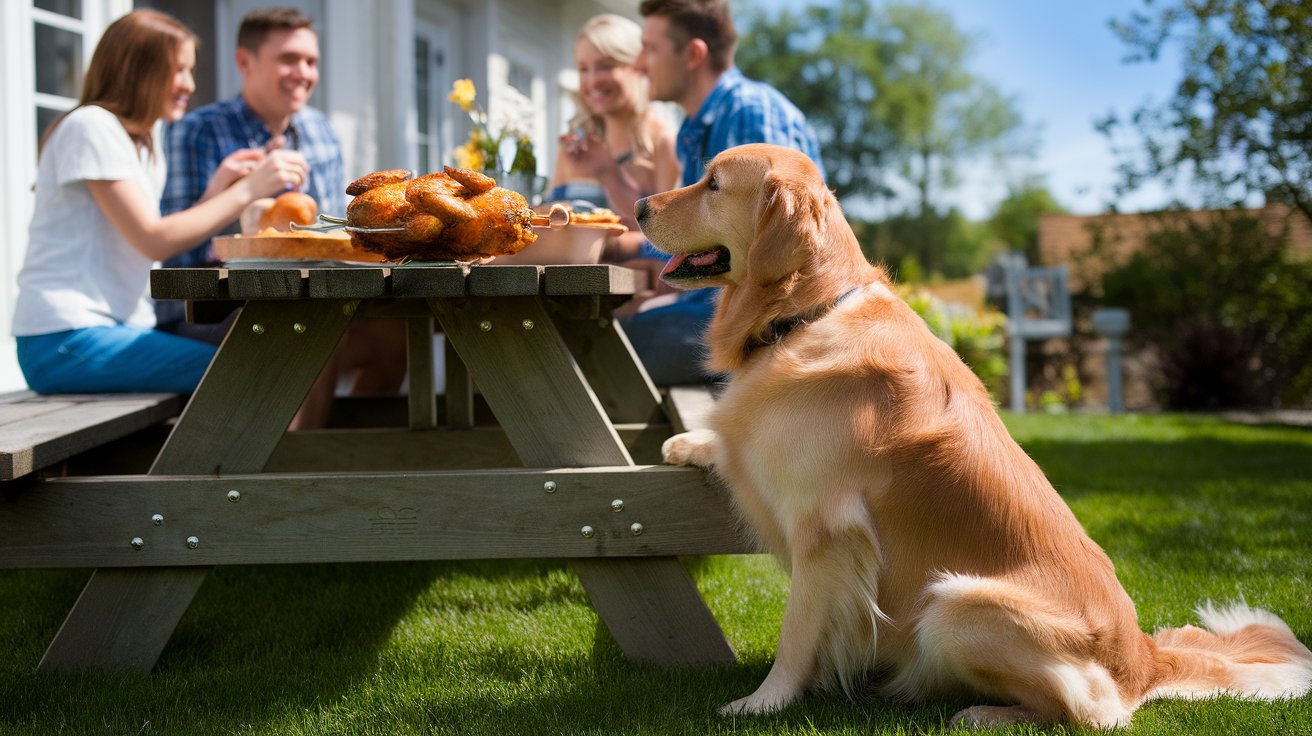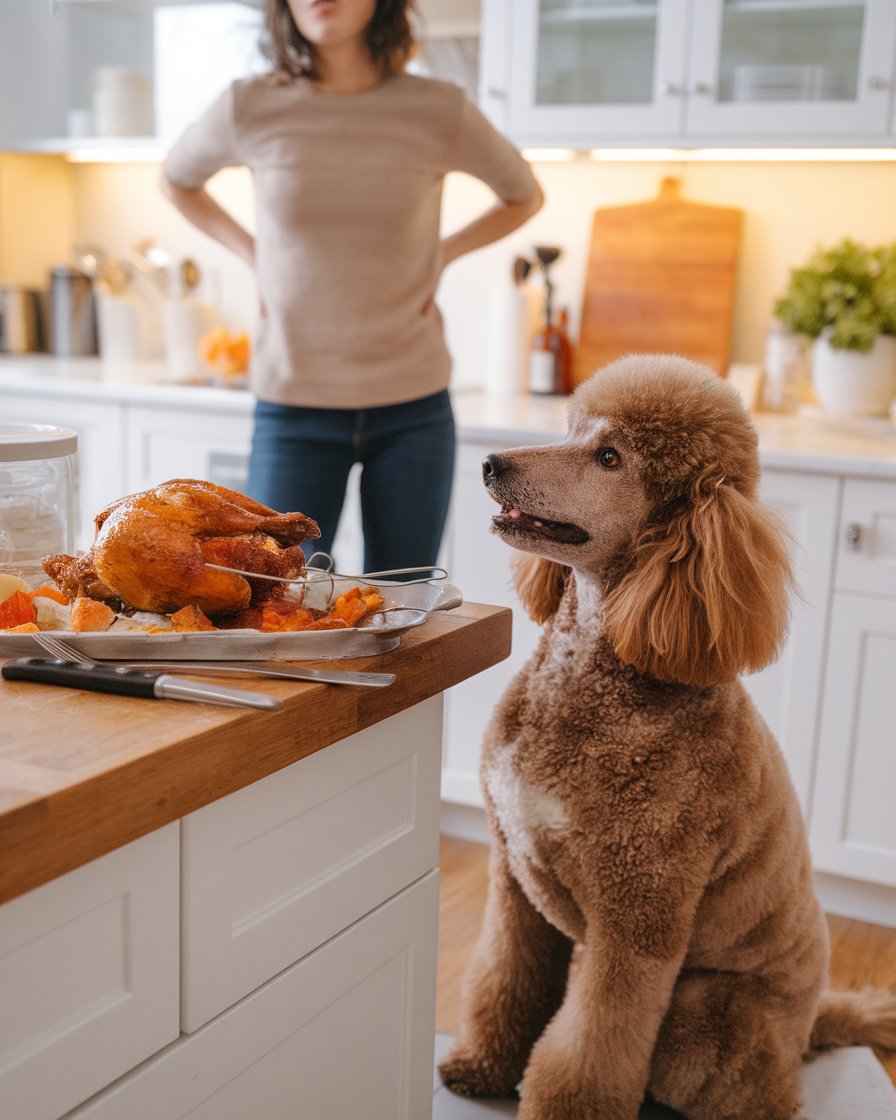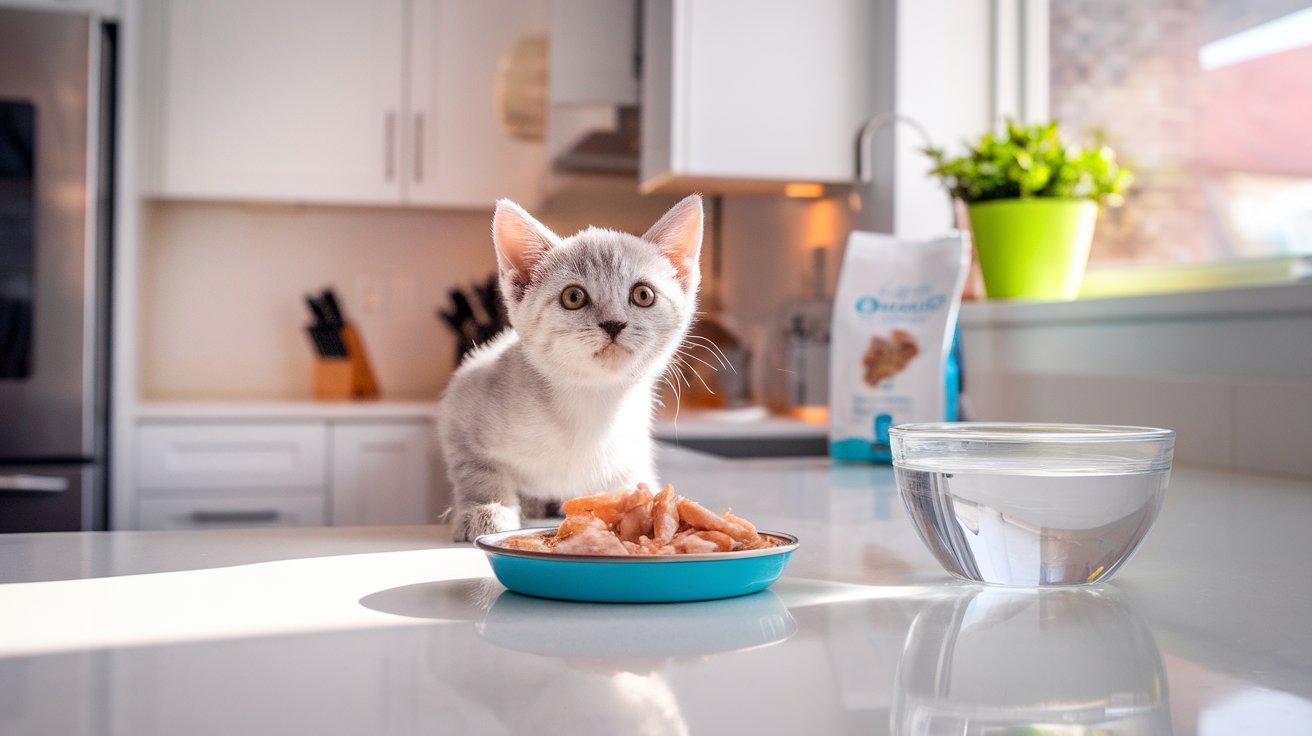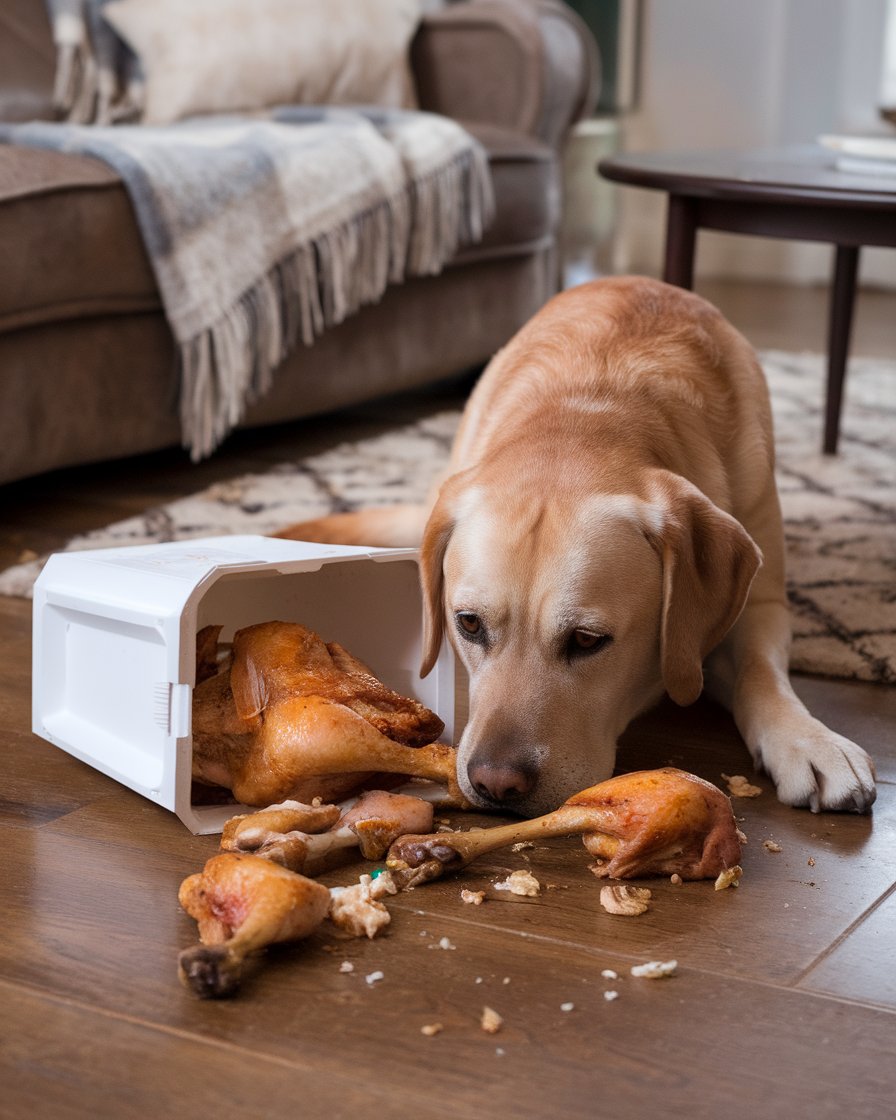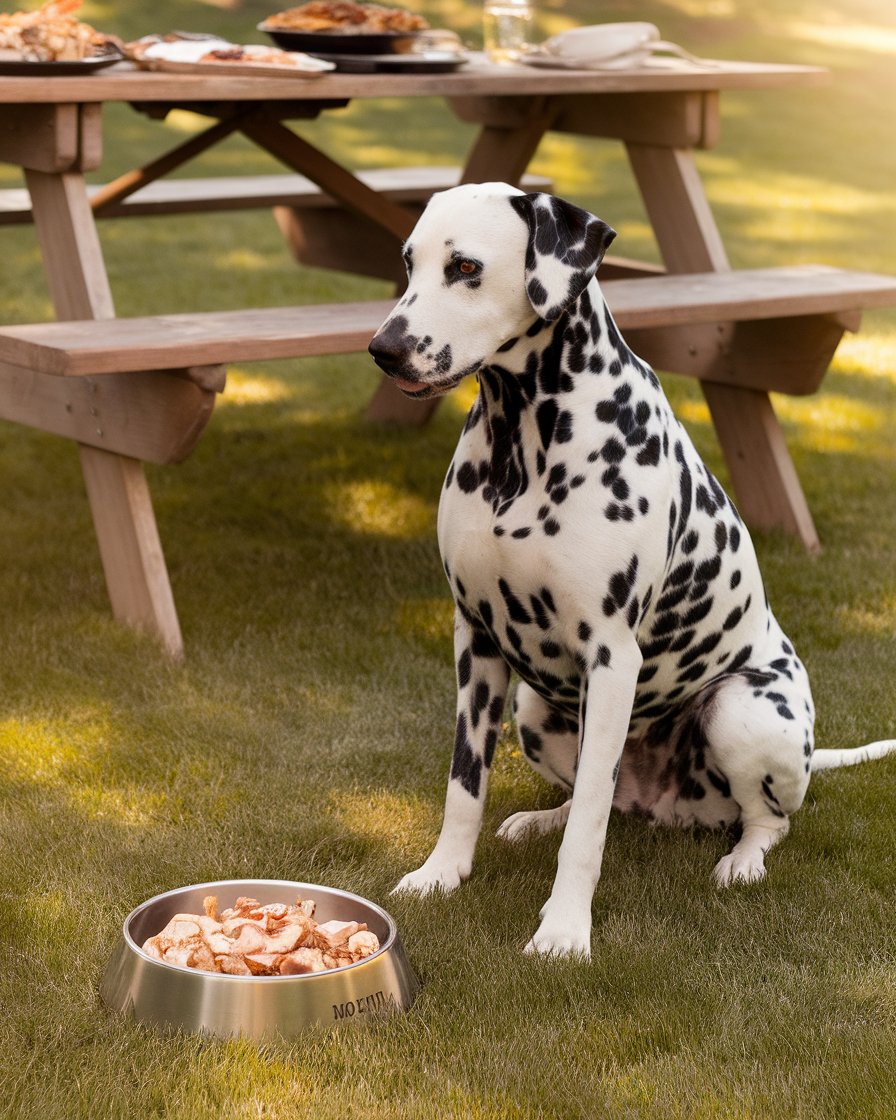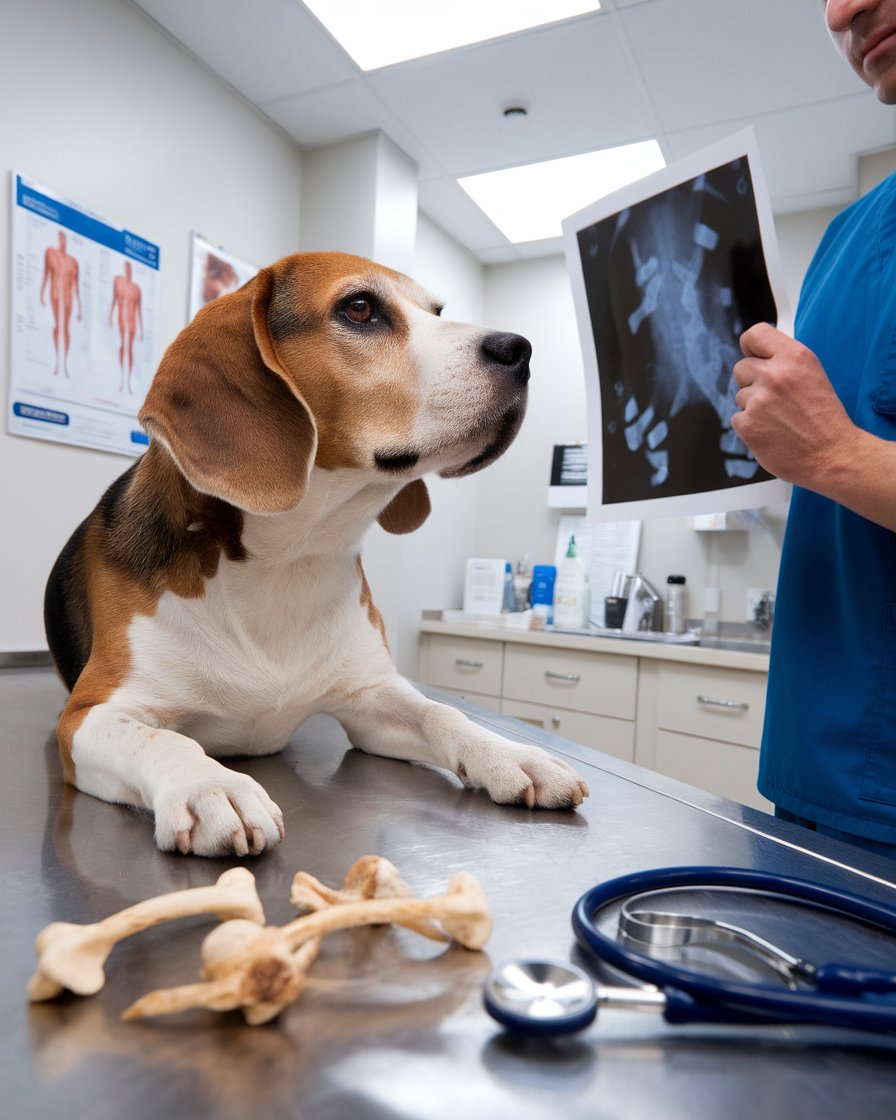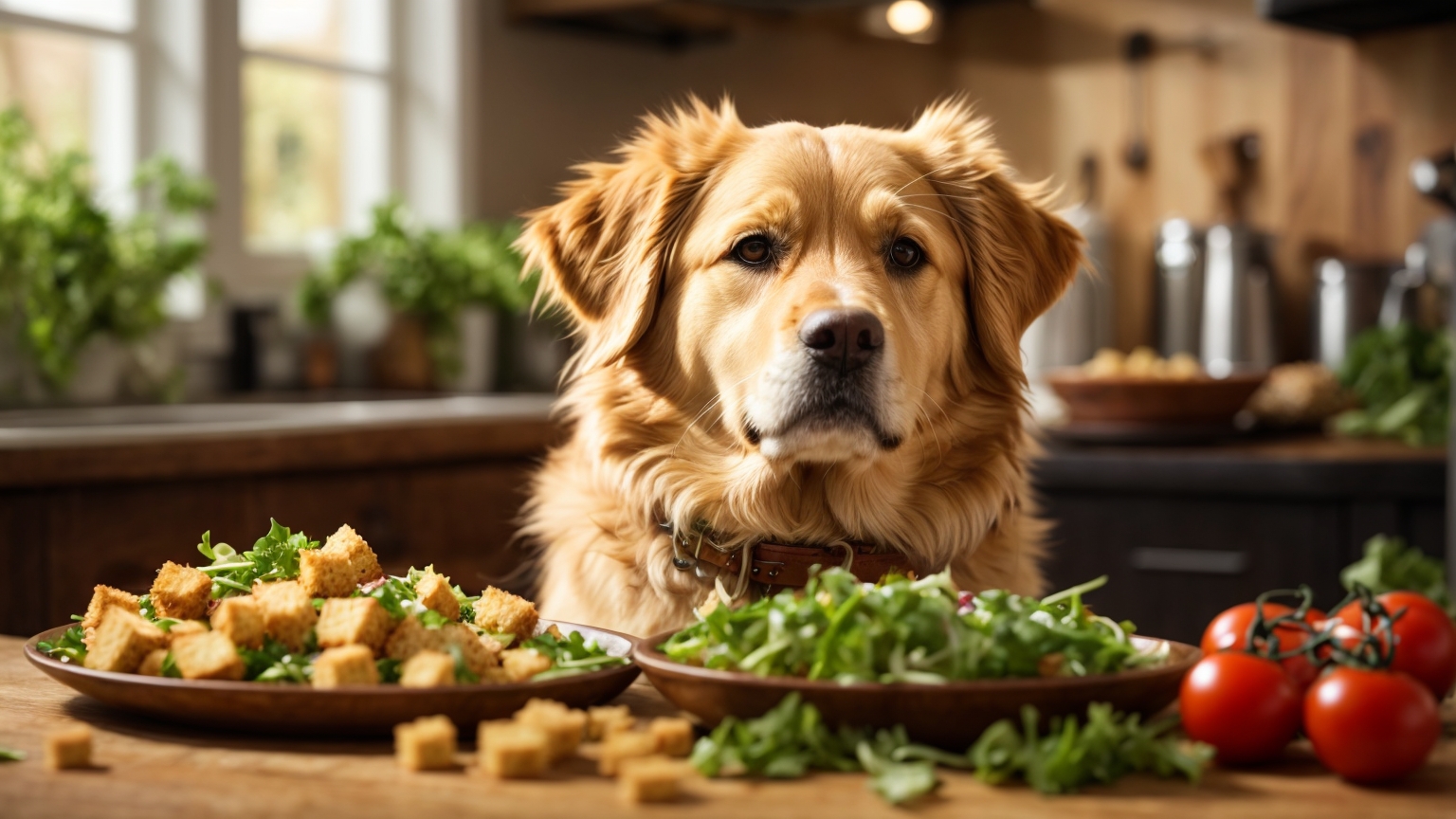Introduction
Feeding your dog rotisserie chicken may seem harmless, but there are several factors to consider before making it a regular part of their diet. Many dog owners are drawn to rotisserie chicken because it’s an excellent source of protein, and dogs generally love the taste. However, it’s important to remember that rotisserie chicken can also come with risks, especially when it includes the skin and bones. While chicken can be a healthy option for dogs, the bones in a rotisserie chicken, once cooked, can splinter and pose serious health threats.
Incorporating chicken into your dog’s diet can be beneficial, but it’s essential to prepare it safely. Feeding your dog skinless chicken or boiled chicken, without any bones, is a far better option. Many store-bought rotisserie chickens contain seasonings that may be harmful to dogs, so ensuring that the chicken is plain and free from added ingredients is crucial. By making careful choices, you can safely include chicken in your dog’s meals.
Key Takeaways
- Rotisserie chicken often contains harmful seasonings like garlic and onions, which are toxic to dogs.
- The skin of rotisserie chicken is high in fat, which can lead to weight gain and pancreatitis in dogs.
- Cooked rotisserie chicken bones can splinter, posing a choking hazard or damaging your dog’s digestive tract.
- If your dog ate an entire rotisserie chicken, monitor them closely for signs of digestive distress or choking.
- Feeding rotisserie chicken in moderation without skin and bones is safer and can be a good source of protein.
- Obesity and nutrient imbalances can occur if too much rotisserie chicken is given, so balance it with your dog’s regular diet.
The Risks of Feeding Rotisserie Chicken to Your Dog
Feeding your dog rotisserie chicken may seem like a tasty treat, but there are significant risks involved. Rotisserie chicken often contains added seasonings, such as garlic and onions, that are toxic to dogs. The skin of the rotisserie chicken is also high in fat, which can lead to weight gain and pancreatitis in dogs. Even though dogs love the taste of rotisserie chicken, frequent feeding can result in digestive issues. Moreover, the bones in cooked chicken can splinter, posing a choking hazard and potential damage to your dog’s digestive tract. It’s essential to remove the skin and bones before offering it to your dog to minimize these risks.
Key Risks of Feeding Rotisserie Chicken to Your Dog
Harmful Seasonings Can Be Toxic
Rotisserie chicken is often seasoned with ingredients that can be toxic to dogs, such as garlic, onions, and other spices. These seasonings can cause gastrointestinal upset and, in severe cases, lead to anemia or other health issues. It’s critical to avoid feeding your dog seasoned chicken and always opt for plain, skinless, boneless options instead.High-Fat Content in Chicken Skin
The skin of rotisserie chicken is high in fat, which can lead to weight gain and potentially life-threatening conditions like pancreatitis. Dogs that consume high-fat foods regularly may also experience digestive issues or develop long-term health problems. Removing the skin before feeding your dog rotisserie chicken helps reduce these risks.Cooked Chicken Bones Can Splinter
Unlike raw bones, cooked chicken bones from a rotisserie chicken become brittle and can easily splinter. These splinters can cause choking or puncture a dog’s digestive tract, leading to severe complications such as internal bleeding or blockages. Always ensure that bones are completely removed before offering chicken to your dog.Digestive Issues from Excessive Fat
Feeding rotisserie chicken too frequently or without removing the skin can lead to digestive issues in dogs, such as vomiting and diarrhea. High-fat content can upset the stomach and even cause long-term gastrointestinal problems. Limiting rotisserie chicken intake and ensuring it is prepared safely can prevent these issues.Potential Obesity and Weight Gain
Regularly feeding rotisserie chicken with the skin can contribute to obesity in dogs. The high fat content can lead to rapid weight gain, increasing the risk of joint problems, heart disease, and other obesity-related conditions. To maintain a healthy weight for your dog, feed them low-fat, skinless chicken in moderation.Seasoning and Fat-Related Pancreatitis
Consuming high-fat foods like rotisserie chicken with the skin can result in pancreatitis, a dangerous condition where the pancreas becomes inflamed. Symptoms include abdominal pain, vomiting, and lethargy. Preventing this condition involves offering only plain, skinless, and boneless chicken to your dog and avoiding the seasonings typically used in rotisserie preparation.
Harmful Seasonings in Rotisserie Chicken
Rotisserie chicken is often seasoned with ingredients that can be toxic to dogs. Garlic, onions, and certain spices commonly found in store-bought rotisserie chicken are particularly dangerous. Even though dogs love the taste, these seasonings can cause gastrointestinal distress, and in some cases, they may lead to more serious health problems like anemia. It’s important to feed your dog plain chicken without these harmful additives. When preparing a meal for your dog, make sure to avoid adding any seasonings, and always opt for skinless, boneless chicken to ensure their safety.
The Impact of High-Fat Chicken Skin on Dogs
The skin of rotisserie chicken is often packed with unhealthy fats. Feeding your dog the skin of rotisserie chicken can contribute to obesity in dogs, and in more severe cases, it can lead to pancreatitis, a life-threatening condition. Rotisserie chicken skin, with its high fat content, is difficult for dogs to digest and can result in gastrointestinal upset. If you want to give your dog rotisserie chicken, it’s crucial to remove the skin before feeding it to them. Offering skinless, boneless chicken can help prevent these issues and keep your dog healthy.
Is It Safe for Dogs to Eat an Entire Rotisserie Chicken?
If your dog ate an entire rotisserie chicken, you may be concerned about the potential health risks. While chicken is a good source of protein, the skin and bones from a rotisserie chicken can be dangerous. The skin is often seasoned with spices that are harmful to dogs, and the bones, when cooked, can splinter and cause internal injuries. If your dog ate an entire rotisserie chicken, it’s important to monitor them for signs of digestive distress or choking. While small amounts of rotisserie chicken meat can be safe, eating the entire bird poses serious health concerns, especially due to the bones and seasonings.
Case Study: The Dangers of Dogs Consuming an Entire Rotisserie Chicken
In a recent case involving a Labrador Retriever, the dog consumed an entire rotisserie chicken, including the skin and bones. The owners were initially unaware of the potential dangers, thinking the chicken was a protein-rich treat. Within hours, the dog exhibited signs of distress, such as vomiting and lethargy. Upon veterinary examination, it was discovered that the cooked chicken bones had splintered and lodged in the digestive tract, causing internal damage. The dog required emergency surgery to remove the bone fragments and prevent further complications.
The case highlights the significant risks associated with feeding dogs rotisserie chicken, particularly when it includes bones and skin. The high-fat content in the chicken skin had also contributed to digestive upset, further complicating the dog’s condition. The veterinarian advised against feeding any cooked bones to dogs in the future, emphasizing that even seemingly harmless chicken can pose severe health threats.
Potential Health Issues from Eating Too Much Rotisserie Chicken
While rotisserie chicken can be a tasty treat, feeding your dog too much can lead to health problems. The high-fat content in the skin, along with the seasonings used, can cause digestive upset. Additionally, if your dog eats an entire rotisserie chicken, including the bones, it may face serious risks such as choking or damage to the digestive tract. It’s essential to monitor your dog for signs of distress, such as vomiting or diarrhea, if they ate an entire rotisserie chicken. In cases like these, contacting your vet is always a good idea.
Signs to Watch for After Your Dog Eats a Whole Rotisserie Chicken
If your dog ate an entire rotisserie chicken, it’s important to keep a close eye on them. Common signs that your dog might be in distress include lethargy, vomiting, and difficulty breathing, which could indicate a bone-related injury. The bones in a rotisserie chicken, when cooked, can splinter and cause damage to the digestive system. If you notice your dog showing any unusual behavior, it’s best to seek veterinary advice immediately. While rotisserie chicken is a good source of protein, eating the whole bird can lead to serious health complications.
How Much Rotisserie Chicken Can You Feed Your Dog?
Knowing how much rotisserie chicken to feed your dog is key to ensuring their safety and health. Rotisserie chicken can be a good source of protein for dogs, but it should not make up a significant portion of their diet. Too much rotisserie chicken, especially if it includes the skin or bones, can lead to obesity in dogs and potential health issues like pancreatitis. Feeding small, boneless pieces of rotisserie chicken as an occasional treat is generally safe, but it’s important to ensure that your dog’s primary diet consists of balanced dog food. Too much rotisserie chicken can lead to nutrient imbalances over time.
Balancing Rotisserie Chicken with a Nutritious Dog Diet
While dogs can eat rotisserie chicken, it’s important to ensure that it complements a balanced diet. A dog’s diet should primarily consist of high-quality dog food that provides all the essential nutrients they need. Rotisserie chicken can be a great source of protein, but feeding too much can result in nutrient imbalances. The best approach is to offer small amounts of rotisserie chicken without the skin or bones, and only occasionally. Ensuring that your dog’s diet is nutritionally complete will keep them healthy and prevent issues like obesity.
Avoiding Obesity When Feeding Rotisserie Chicken
Rotisserie chicken, when fed too often or in large quantities, can lead to weight gain in dogs. The high-fat content, especially from the skin, can contribute to obesity. Obesity in dogs is a serious concern, as it can lead to a range of health issues, from joint problems to heart disease. If you choose to feed your dog rotisserie chicken, make sure it is given in moderation and without the skin. Incorporating chicken into your dog’s diet safely involves keeping portions small and ensuring it doesn’t replace their regular dog food.
“Dogs are not our whole life, but they make our lives whole.” – Roger Caras
Understanding the Dangers of Rotisserie Chicken Bones for Dogs
One of the biggest concerns when feeding rotisserie chicken to dogs is the danger of cooked bones. Unlike raw bones, cooked chicken bones become brittle and can easily splinter, causing severe damage to your dog’s mouth, throat, or digestive system. If your dog ate rotisserie chicken bones, you should seek veterinary attention immediately. Symptoms of bone-related injuries include vomiting, lethargy, and difficulty breathing. Always ensure that the bones are removed before giving any rotisserie chicken to your dog, as they pose a significant risk to their health.
Why Cooked Chicken Bones Are Dangerous
Cooked chicken bones are a major hazard for dogs. Unlike raw bones, which are often safe for dogs to chew, cooked bones from a rotisserie chicken can splinter easily and cause serious injuries. If your dog ate rotisserie chicken bones, it could suffer from a blocked digestive tract or internal bleeding. Even if your dog seems fine immediately after eating the bones, it’s important to monitor them closely for any signs of distress, such as vomiting or abdominal pain. Always remove the bones before feeding your dog rotisserie chicken to avoid these risks.
What to Do If Your Dog Ate Rotisserie Chicken Bones
If your dog has consumed rotisserie chicken bones, you need to act quickly. Cooked chicken bones can splinter and cause internal injuries, such as a punctured stomach or intestines. Signs to look out for include vomiting, lethargy, or difficulty breathing. If your dog displays any of these symptoms, it’s important to contact your veterinarian immediately. In many cases, surgery may be required to remove the bones. Prevention is key, so always ensure that rotisserie chicken bones are kept out of reach of your dog.
Conclusion
Feeding your dog rotisserie chicken can be tempting because chicken is an excellent source of protein, and many dogs love the flavor. However, it’s important to remember that while rotisserie chicken can be safe and healthy when prepared correctly, it can also pose risks. The skin of the chicken is high in fat and can lead to health issues like obesity and pancreatitis. Additionally, the cooked bones in the rotisserie chicken can splinter, which may result in choking or internal injuries.
When incorporating chicken into your dog’s diet, it’s essential to remove the skin and bones and feed them boiled boneless chicken or ground chicken instead. This ensures your dog gets the benefits of chicken without the associated risks. Always monitor your dog for any signs of distress after feeding, especially if you use rotisserie chicken as a treat. By making careful choices, you can safely include chicken in your dog’s diet while keeping them healthy and happy.

